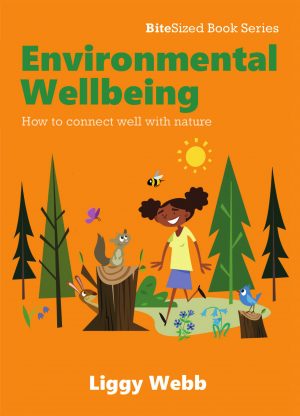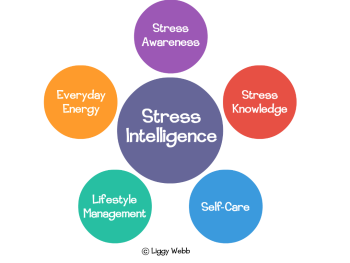The natural world is the foundation of our health, wellbeing and prosperity and exposure to nature is beneficial for all of us as human beings. Connecting to nature can boost our mental health and contribute to our physical wellbeing by reducing blood pressure, regulating heart rate, easing muscle tension and managing stress levels.
There are so many ways that we can bring nature into our everyday life from indoor or outdoor gardening, exercising in the fresh air, exploring green spaces and being around insects and animals. Any way that we can connect with nature will have a positive impact on our overall health and wellbeing.
1. Slow down and appreciate what is going on around you
We are living in the busy ages and often we have so much going on that we can take for granted the wonders of nature and what is happening around us in the actual moment. Being more mindful and creating intentional pauses in our day to notice and appreciate things is so important for our overall wellbeing.
When we take time each day to be grateful for what is happening around us, we will begin to appreciate things far more. Simply observing a beautiful butterfly feeding amongst the flowers in the garden, or listening to a bird singing, can bring with it a precious moment of joy.

2. Open your windows and let the fresh air into your home
Opening our windows and doors allows natural air to flow through our homes which can provide a more relaxing and natural atmosphere. This also allows us to let out stale air because this is air that has been breathed in and doesn’t contain as much oxygen as the fresh air from the outside.
A lack of fresh air can mean a lack of oxygen to the brain resulting in fatigue and dullness of mind. So, even on a cold day, turning off the central heating, wrapping up warm and letting some fresh air breeze through our homes can do us the world of good.
3. Exercise outside as much as you can
Walking is a great form of exercise and it is simple, free and one of the easiest ways to get more active, lose weight and boost our overall wellbeing. Whether we walk in the local park or around the neighbourhood, getting outside exposure will strengthen our connection with nature.
Walking 10,000 steps is equal to walking approximately five miles. This number of steps is often quoted as a good daily target to aim for and will help to boost our emotional and physical health. Any sport or hobby that involves the great outdoors is an excellent way to get our exercise.

4. Embrace the benefits of gardening
Gardening is a fascinating experience that exposes us directly to the work of nature as we watch things grow. It has also been proven to improve mood, manage feelings of anxiety and depression as well as reduce stress levels.
Gardening is also a great way to get fit with digging and shovelling coming top of the list for burning the most calories and mowing and weeding not too far behind. Gardening can be a very creative activity and provides us with a sense of purpose and achievement, as well as inspiring us with the many miracles of nature.
5. Holiday in the fresh air
A camping trip on our own, or with friends and family, can be a wonderful way to bond not only with each other but also with nature. Getting away from technology and the noise of everyday life and being amongst the trees and stars can be so relaxing.
Imagine a day filled with exploring the countryside and nature, followed by an evening of great conversation and stories whilst sitting around a campfire toasting something delicious. Then far away from the city lights, falling to sleep beneath a pure pitch-black sky filled with sparkling stars. How lovely!
6. Look at the stars
When we look at the sky on a clear evening, we will be able to see a few thousand individual stars with our naked eye and even with a modest amateur telescope, millions more will come into view. NASA estimates that there are about 100 billion stars in our galaxy; however, to establish the exact amount would be like trying to count grains of sand on a beach.
Stargazing can connect us with nature as we gaze in awe at the vastness of the star filled sky. The best time to go stargazing is the days before, during and soon after each new moon. This is when we will be able to see far more of those magical stars with our naked eye.

7. Take an interest in insects
According to the Royal Entomological Society there are over one million species of insects that have been discovered and described; however, it is estimated that there may be as many as 10 million species on earth.
Insect behaviour is fascinating, and these little creatures provide very useful services to mankind and the environment, in so many ways. Insects keep pest insects in check, pollinate crops and act as sanitation experts by cleaning up waste so that the world doesn’t become overrun with dung!

8. Notice each season’s flowers
Flowers can have an immediate impact on our happiness and a long-term positive effect on our mood. Various studies have reported people feeling less depressed, anxious and agitated after receiving flowers.
Flowers can provide natural medicines for humans and some animals and they also assist in a plant’s reproduction by attracting outside pollinators. Without all the varied colours of flowers, plants would only be green, and the world would be a duller place. Noticing each flower that is in season and learning their names is a great way to exercise our minds as we learn about each one.

9. Protect and support wildlife
To maintain a healthy ecological balance on earth, animals, marine species and plants are as important as human beings. Every organism has a unique function in the food chain that makes a valuable contribution to our ecosystem. Many animals and birds are becoming endangered so by conserving wildlife, we are ensuring that future generations can enjoy our natural world and all the important species that live within it.
Learning more about wildlife, living responsibly, volunteering and making donations can all be so helpful. Adopting an animal for someone, as a special gift, is just one wonderful way that will help people feel that they are doing their bit for the environment.

10. Make a positive difference
If we all make the effort to reduce our impact on the environment, then together, we can make a positive difference. The changes that we make don’t have to be huge either and there are so many simple things that we can do at home or in the workplace that will help.
Making a conscious habit of eliminating one-use plastic, saving water, turning off lights or thinking twice before we drive our cars, instead of cycling or walking, can make such an important impact. Each of us in a little area of the earth can make such a positive difference and if all of us make a commitment to do our little bit of good by critical mass it will have a huge impact. Besides if you think you are too small to make a difference try going to bed with a mosquito!
Order your copy of Environmental Wellbeing today for delivery week commencing 26-April.
-
 Environmental Wellbeing£2.99
Environmental Wellbeing£2.99
For updates for future blogs, free webinars and various other useful resources please do join my newsletter.











 5 top tips to manage stress well
5 top tips to manage stress well


